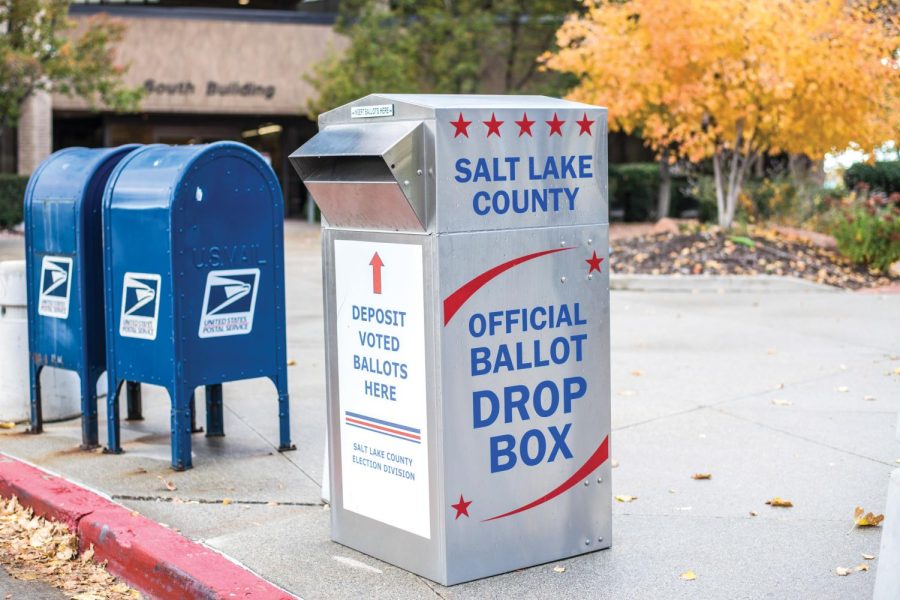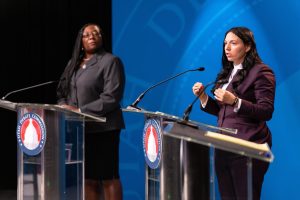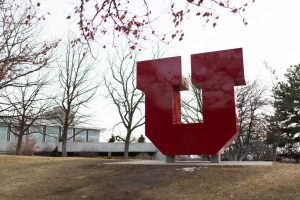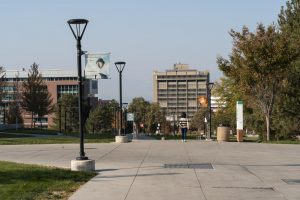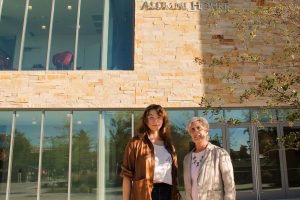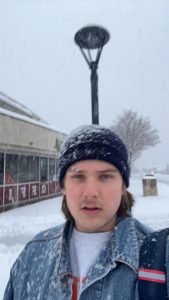What Students Need to Know Before Election Day
A ballot drop box for the 2018 midterm elections at the Salt Lake County Building in Salt Lake City on Oct. 23, 2018. (Photo by Curtis Lin | The Daily Utah Chronicle)
October 18, 2022
Midterm elections are quickly approaching, and the University of Utah offers several resources and opportunities to get students prepared to vote.
Students can expect to see the Senate race between incumbent Sen. Mike Lee and challenger Evan McMullin on their ballots, as well as Utah’s 2nd Congressional District election where Republican incumbent Chris Stewart will be challenged by Democrat Nick Mitchell.
Morgan Lyon Cotti, associate director of the Hinckley Institute of Politics, said there will be booths set up around campus for students to register to vote, and they can also come to the Hinckley Institute or the ASUU office to get help registering there. In addition, students can easily register to vote online using the Hinckley Institute’s website.
This process takes about five minutes and will request information from students such as their address and their driver’s license number. Once the form is completed, it needs to be reviewed by the county clerk and then an email will be sent confirming the registration. The deadline for registering online is Oct. 28, but students can still register to vote in person at a voting location on Election Day.
The U will also have an in-person voting center in the Gould Auditorium at Marriott Library on Election Day to make it even easier for students to vote in person. This center is also open to any voters registered in Salt Lake County.
“At the Hinckley Institute, we’re members of the Andrew Goodman Foundation, which was named after a young man who was lynched for registering young, especially African American, citizens to vote,” Lyon Cotti said. “So we carry on that legacy.” She added that the U is part of the Campus Cup, which is essentially a competition among universities in Utah to get as many voters registered as possible.
Part of the Hinckley Institute’s mission is voter education, so they hold events and debates where students can learn more about the candidates. The most recent of these debates was the Utah U.S. Congressional District 4 Debate held at the University of Utah. The institute does this as part of the Utah Debate Commission and the Utah Education Debate Coalition.
The U also airs a weekly podcast titled the Hinckley Report, in which voting issues and candidates are discussed. “You can watch it or listen to it,” Lyon Cotti said. “There’s lots of resources literally on the U of U’s website where students can learn about all of these issues.”
In this year’s midterm elections, all 435 seats in the House of Representatives will be contested, as will 35 of the 100 seats in the Senate. For Utahns, the most prominent of these elections is the Senate race between incumbent Mike Lee and independent candidate Evan McMullin. Utahns will also see contested races among all four U.S. House districts in the state.
James Curry, professor of political science at the U, discussed how unique the Senate race is in the sense there is a Republican running against an independent backed by Democrats.
“Part of this stems from some prominent Democrats in the state not believing that their party can win a statewide race,” he said. “So you have sort of a strategic effort on their behalf to back an independent to try to beat a Republican incumbent.”
He added McMullin has gained support from some Republicans who want to distance themselves and their party from former President Donald Trump, who Lee has openly supported in the past.
“In some ways, it’s a fascinating race in that we get to see an intra-party fight that’s going on all over the country kind of happening live and very publicly in a general election,” he said. “Whereas most of those fights took place during primary election stages.”
Other than their opinions on Trump, the two candidates are not worlds apart in terms of policy, Curry said.
Curry encouraged voters to carefully consider everything a candidate says when it comes to picking someone to vote for and to be wary of vague statements or promises that cannot be kept.
“When a candidate says something like they want to clean up Washington, that doesn’t actually mean anything,” he said. “It’s just something you say.”
He added that for a candidate like McMullin, who is historically conservative, he might be more inclined to make these vague, broad-stroke statements in order not to alienate left-leaning or centrist voters, whose support he will need to defeat Lee.
“There’s some things that candidates say to sound good, and there are some things they’ll say that will signal what they’ll actually spend time on,” Curry said.
When it comes to making a choice between two candidates whose views are not really that different, Curry said students should choose what issues they feel most passionate about and vote accordingly. He added for college students, who tend to be more left-leaning, it may be more difficult to distinguish between the two than for conservative demographics, but they should still do research and make the most informed decision.
Curry stressed the importance of young people showing up at the polls and voting when the time comes. He added the reason it is important they vote is because politicians are more receptive to groups of people who are more likely to vote.
“Everyone’s a potential voter,” he said. “But politicians know which of their constituents and what parts of their voting population do pay attention and do vote regularly in elections, and they’re far more likely to cater to those populations’ interests.”
Lyon Cotti said that Utah and the U want young people’s voices to be heard, and this is shown by how easy it is now to register and vote.
“That young voice is critical in every election and we want our students, we want our young people voting,” she said. “It’s easier to register to vote and vote in Utah than it ever has been in our history.”
Curry said the young voice would have more sway if more young voters showed up to the polls.
“If young people want to get what they want out of the political process, they have to engage in it, and they actually have to vote,” he said. “I promise you if young people ever did that at the same rate as older generations, politicians would pay closer attention to what young people want.”


